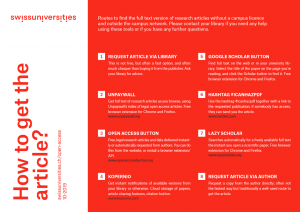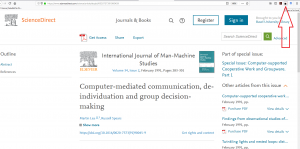Dr Dolores Albarracin, Professor of Psychology, Business, and Medicine at the University of Illinois at Urbana-Champaign, USA, visits Basel on 5 December to give a talk in the SWE colloquium series.

Action dominance: Action and inaction in a social world
My colleagues and I have proposed that behavior is often controlled by general goals to be active or inactive regardless of the specific behaviors meeting these goals (trivial and important behaviors, planned and impulsive behaviors). However, action is more likely to become a goal than is inaction. Action (vs. inaction) attracts more interest and attention, produces richer representations, and is idealized as positive and intentional. In many ways, this construal is adaptive; in many others, in produces more performance errors and likely decreases the closeness of our social connections.
 AlumniPsychologie – the Alumni network of the Faculty of Psychology, University of Basel – continues its interview series with former students of our faculty. What jobs do current alumni have? What challenges do they face in their professional development? How has a degree in psychology helped them prepare for work „in the wild“?
AlumniPsychologie – the Alumni network of the Faculty of Psychology, University of Basel – continues its interview series with former students of our faculty. What jobs do current alumni have? What challenges do they face in their professional development? How has a degree in psychology helped them prepare for work „in the wild“?


